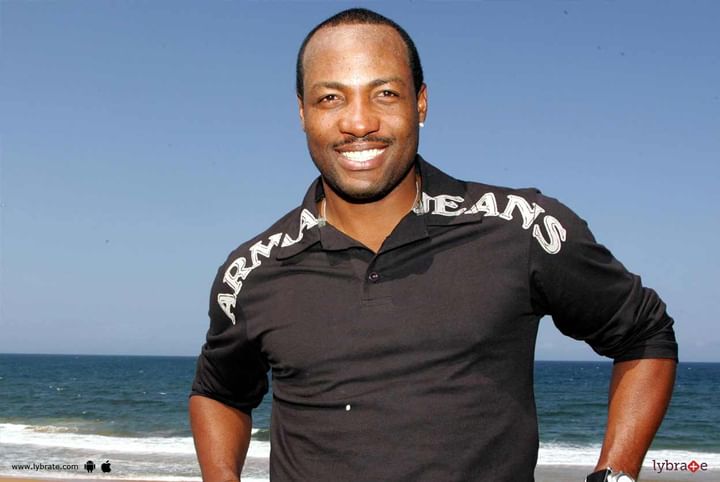Brian Lara Suffers Minor Heart Scare!
Brian Lara, one of the greatest batsmen of all time, was admitted to Mumbai’s Global Hospital today (25 June, 2019) due to minor heart scare. He was complaining of uneasiness in the chest a few days back. He will be discharged very soon.
A similar case was also seen last week. 23-year-old Fabrice Muamba collapsed during the match between Bolton Wanderers and Tottenham Hotspur. Therefore, sportspersons should take proper diet to avoid such situations. They need more energy, proteins, vitamins, calories, minerals, carbohydrates and fats than other people. On an average, a sportsman below 30 years of age needs 3000 Kilocalories of food whereas those beyond 30 years need 2800-3000 Kilocalories of food daily.
A person usually gets a heart scare when there is a blockage in the arteries of the heart. This is an emergency situation that can result in a fatality or death if it is not treated immediately. Not all heart scares will have a crushing pain in the chest right in the beginning, there are a number of symptoms that can show the slow progression of this attack over a few hours. So how do you know if you are having a heart scare? This article seeks to answer all your questions.
Symptoms include:
-
Shortness of breath
-
Sweating
-
Fatigue
-
Pain in chest
-
Sudden dizziness
Due to an unhealthy lifestyle, heart problems are increasing day by day.
The common causes of heart scare are listed below:
-
Stress
-
Diabetes
-
Tobacco
-
High blood pressure
-
Obesity
-
High blood cholesterol level
-
Family history of heart attack
Diagnosis of heart scare:
Heart scare is diagnosed if the patient has two criteria out of following -
-
Pain or discomfort thought to be due to heart disease
-
ECG suggestive of heart attack
-
Elevated levels of cardiac enzymes (CK-MB and Troponin) in blood test (these levels start rising after 6 to 12 hours of heart attack)
Once you reach the doctor, an ECG should be done immediately along with blood pressure and pulse. If ECG shows heart attack then immediate action needs to be taken. Remember a normal first ECG does not rule out a heart attack. So a series of ECGs may be conducted by the doctor and at the proper time blood test of cardiac enzymes may be done. Ruling out a heart attack may need an observation and testing up to 6 – 12 hours as cardiac enzyme test shows results only after that period.



+1.svg)
